I'm writing a base converter because I have a test soon and I need to convert a binary number in 3 different bases: octal, decimal and hexadecimal. I've already written the code that convert a binary string into decimal and hexadecimal.
function bintodec(Value:string;dec:TEdit;hexadec:TEdit): Integer;
var //dec and hexadec are the TEdits where I will put the result
i, iValueSize: Integer;
Edit2,f:TEdit;
begin
Result := 0;
iValueSize := Length(Value);
for i := iValueSize downto 1 do
begin
if Value[i] = '1' then Result := Result + (1 shl (iValueSize - i));
end;
dec.Text:=(IntToStr(Result)); //dec. number
hexadec.Text:=(IntToHex(Result,8)); //hexadec. number
end;
As you can see here, the function takes a string (for example 10101001) and puts into 2 different edit the result.

I've made a function that convert a decimal number into an octal number but when I press the SpeedButton Calc. I have an error. It says that project1 raised a class exception 'External: SIGSEGV' and then near to Unit1 I see the page control.inc. I've searched on google a solution but I didn't find useful answers.
function dec2oct(mystring:Integer): String;
var
a: String;
getal_met_rest : Double;
Edit2:TEdit;
begin
while mystring> 0 do
begin
getal_met_rest := getal / 8;
a:= a + IntToStr(mystring - (trunc(getal_met_rest)*8));
getal := trunc(getal_met_rest);
end;
dec2oct:=ReverseString(a);
Edit2.text:=dec2oct
end;
I didn't find a way for binary-octal conversion, so once I've converted from binary to decimal, I call the function dec2oct . I call the functions in this way:
var a:smallint;
begin
bintodec(Edit1.Text,Edit3,Edit4);
dec2oct(Edit3.Text); //Edit3 contains the number on base 10
end;
Could you help me?